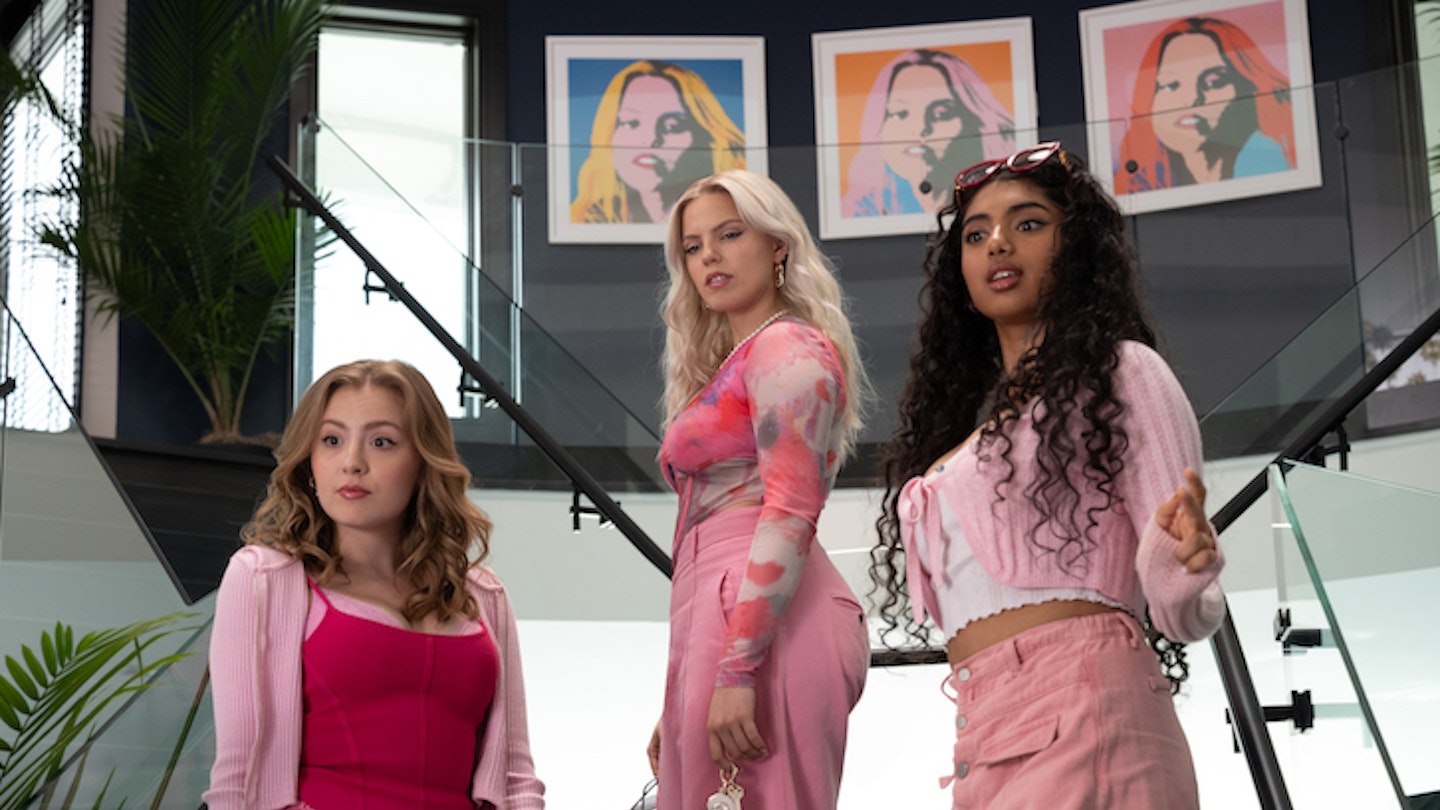'This is not your mother’s Mean Girls,’ blared the trailer for the new Mean Girls movie, 20 years on from the Lindsay Lohan-starring original. There are certainly some key differences. For a start, it’s a musical, with songs from the Broadway show of the same name. And it’s updated for Gen Z with inevitable TikTok montages. It also has double the budget, which is clear in everything from the hair and make-up to the sexy Santa costumes for the Winter Talent Show.
But much of it is the same: Tina Fey’s storyline and dialogue and, of course, the representation of toxic femininity in female friendships. The film paints high school life as a highly stressful navigation of rules and codes created by the queen bee, in this case Regina George – played with relish by Reneé Rapp.
If the film is a cautionary tale, as the opening number promises, then have we learned anything since 2004? ‘I don’t think we’ve escaped the idea of the mean girl,’ says Claire Cohen, author of BFF? The Truth About Female Friendship. ‘In fact, since the first film, it’s become shorthand – if we’re not perfect BFFs, we must be mean girls, scratching each other’s eyes out.’ She adds that, while men exhibit some of the same behaviours, it’s not seen in the same way. ‘Queen bee is such a gendered jibe,’ she sighs. ‘When men act “alpha” it tends to be admired, but we see women who want to rule their social circle as calculating and preening.’
Watching the two films 20 years apart is certainly a different experience. In my early twenties, I related to the teenagers and laughed at the adult characters such as Amy Poehler’s ‘cool mom’. This time around, Regina’s mum is played by Busy Philipps and I saw a heartbreaking desperation in her desire to be part of her daughter’s gang.
Meanwhile, the painfully insecure Gretchen Wieners, who tries so hard to make ‘fetch’ happen, is little more than a comic foil and plot device in the original film. It’s her need for Regina’s approval that makes her so easy to manipulate – ultimately spilling the secrets that lead to her frenemy’s downfall. In the new film, however, Bebe Wood sings What’s Wrong With Me?, a ballad of teen self-doubt with the poignant line, ‘Mama called me beautiful, I don’t believe her any more.’ As she looks sadly at the music box she had given Regina when they were little, it’s emblematic of how many girls lose their childish joy and confidence when they start to become independent and seek external approval. Thinking of my own joyous, confident six-year-old daughter, I’m not ashamed to admit I cried.
The film’s appeal is so enduring because it hits home in a very real way. Luckily, high school isn’t forever. It’s a time when we’re working out who we want to be, trying
on new identities and personalities. Unfortunately, this process is complicated by the fact that our brains, bodies, desires and social skills are all over the place. As Jon Hamm’s sex education teacher says in the new film, ‘Girls are made deranged by something called hormones.’
But we grow out of it. Sure, there are still adult mean girls presiding over their social circles or workplaces using fear to divide and rule. But there are men who do the same thing. And by the time we’re adults, most of us see that being kind and straightforward, while supporting each other, makes everyone happier. Like most adult women, my friends and I have been through promotions, marriages, babies and celebrations – but also redundancies, illness, grief and heartbreak. Friendship as an adult isn’t about following girl code; it’s about being there when needed, while acknowledging that we won’t always say the right thing or be the ‘best’ kind of friend.
As a cultural phenomenon, Mean Girls continues to give us a springboard to talk about how we want our female friendships to be – with our friends and our daughters. ‘From a young age, we’re taught these stereotypes of female friendship,’ says Cohen. ‘It creates a distrust of anything other than “perfect” friendship and sets us up for disappointment, as it doesn’t leave room for the sort of relationships most of us end up experiencing with other women: flawed, messy, loving and real. Isn’t that infinitely better than some movie cliché?’
